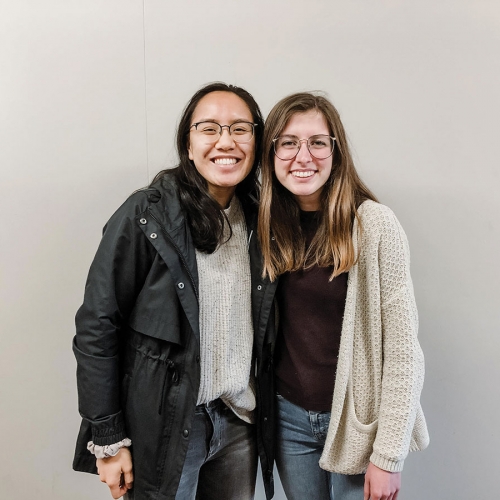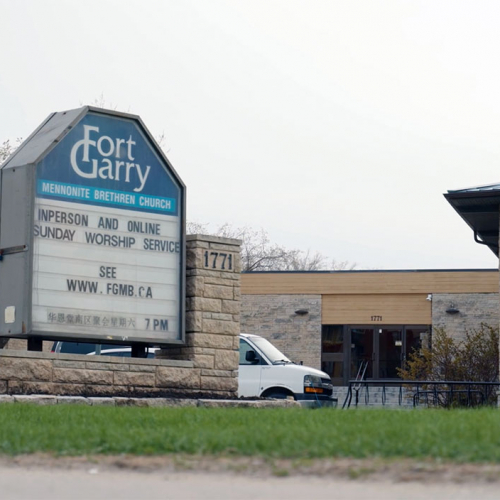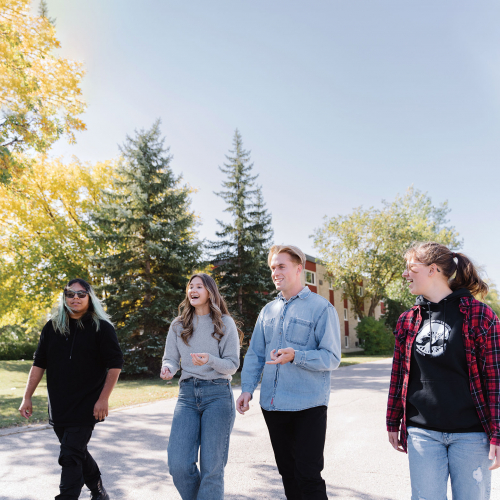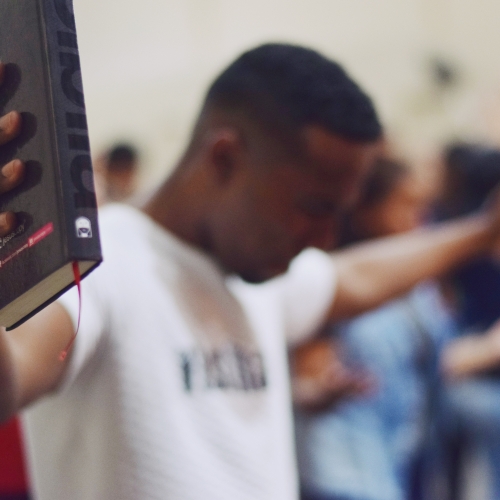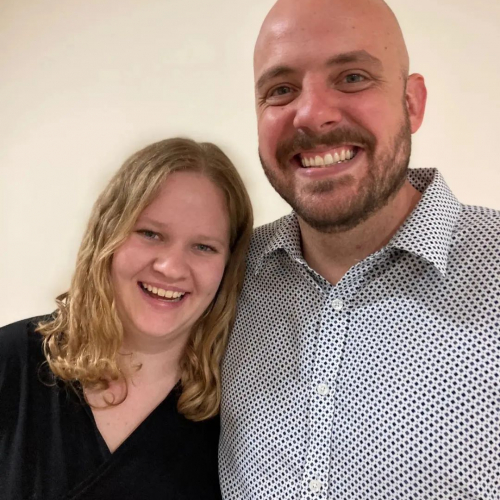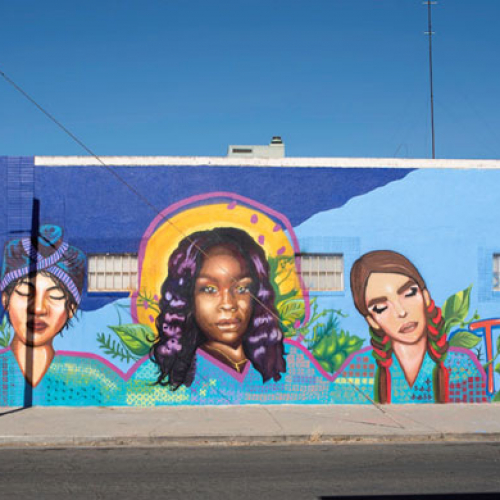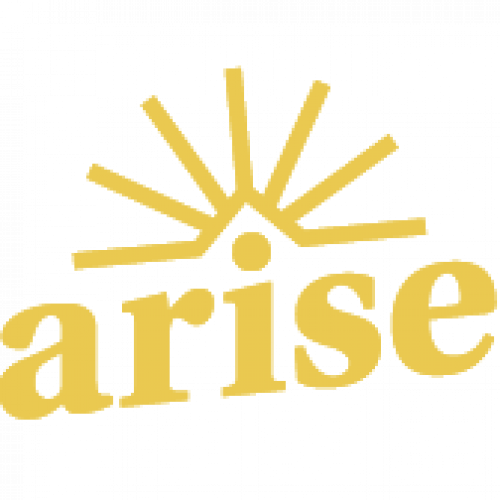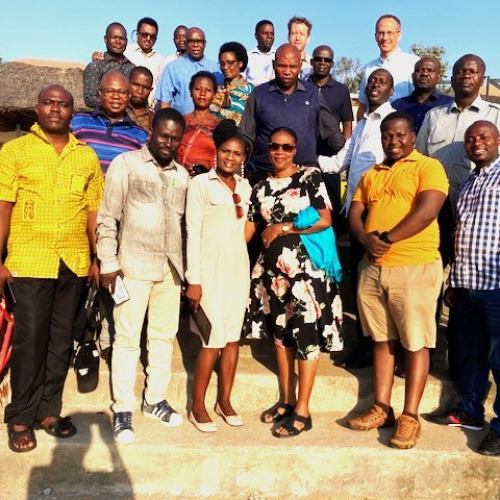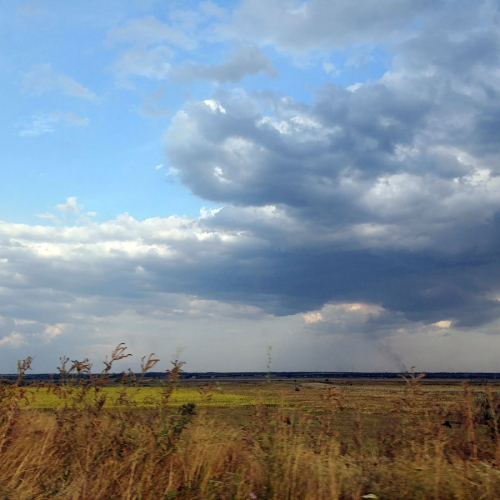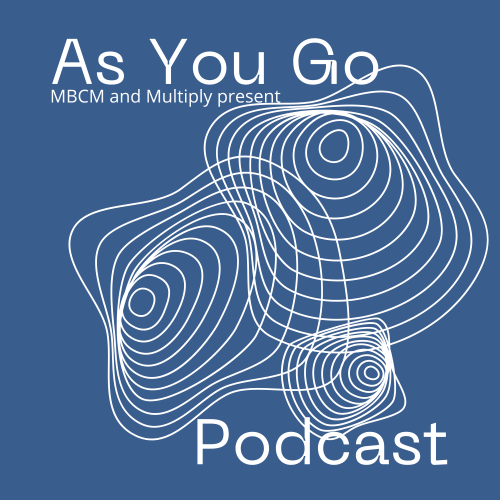Mark: You recently finished hosting the first FOCUS Internship in Winnipeg. What did you love about leading that program?
Carol: We loved the interns! We loved being in community with them and learning from them, and with them.
Lloyd: There were a couple of things that were unique about FOCUS. First, we had all of the interns living in high-density apartments among new immigrants. So, as they were receiving mission training, they were able to practice what they were learning with their new neighbors. They had so many beautiful opportunities to share the Gospel with people, which became very central to their learning and prepared them well for wherever they did their mission assignment afterward.
Carol: Another unique aspect of FOCUS was how diverse the group was. We had some participants in their twenties and others in their sixties. Some were single, some were married with young children, and others were married with adult children. We had four Americans, nine Canadians, and two South Americans. That diversity brought a richness to the training experience. We learned how to respect each other in our differences.
Lloyd: The third thing was how our Global Lead Team (GLT) facilitated the teaching at FOCUS, which meant that we had a very multi-cultural mix of influences. The members of the GLT are not only gifted teachers with a lot of godly wisdom, but they also brought a wealth of cross-cultural experience—some come from different countries, and some have decades of experience learning new languages and cultures. That opened the eyes of the interns and helped them see things from a wider variety of perspectives.
Carol: One example was our Regional Team Leader for North Africa and the Middle East, Nasser al’Qahtani, who talked to the group about seizing opportunities with their Muslim neighbors in the apartments. He encouraged them to speak openly about two topics: politics and religion. That was so counter-cultural for the North Americans, but when they put it into practice, they quickly found out how easy it was to talk about these things with Muslim immigrants from around the world. It opened up beautiful opportunities for them to share their faith in Jesus. And some of those interns are still meeting with those neighbors regularly today!
Mark: What did you learn during COVID when so many programs had to shut down?
Lloyd: Mostly, we learned two things: small is good, and local is good.
Carol: During the pandemic, all the programs that involved international travel were stopped completely. No one was traveling anywhere. But, our two most successful local programs, SOAR Heartland (in Winnipeg) and SOAR Saskatchewan just kept going. They were online, and they were smaller, but they happened, even that first year. And then they moved on to a combination of online and in-person. And now they’re back full force with 250 and 100 participants respectively. So, that taught us something—it’s much easier to adapt when you’re working on a smaller scale with local connections.
Lloyd: Of course, COVID was a reset for many people. A lot of people were asking, What is church? They were re-evaluating their lives and thinking more about mission and purpose. So, we felt like we had a blank slate, especially with youth. Since our programs were already very community oriented, we experimented more with small groups and we found that youth were, in general, very open to new things during the pandemic. They were ripe for honest conversations. They wanted to explore identity with purpose.
Carol: And not just youth! Our programs have always been very multi-generational. Sometimes parents and leaders bring their youth, but they quickly realize that it’s for them too, and they stay, and they get refreshed.
Lloyd: During COVID, we saw that people had a strong desire for intimacy, so we gave them small groups, but they also wanted that sense of being a part of something bigger than themselves, so we tried to help them get outside of themselves and see the bigger church and the wider world.
Mark: We used to call them Short-Term Mission programs, but now we call them Mission Training Programs. Why?
Carol: There were a couple of things that we wanted to communicate differently. First, there’s nothing short term about God’s mission, so we want everything we do to be focused on long-term outcomes. Wherever we go, whatever we do, we want to invest in what God is doing through local churches, through the people that will continue to be a part of that local context.
Lloyd: Doesn’t that sound like a more sustainable strategy for everyone involved?
Mark: Absolutely. But hey, I’m asking the questions in this interview.
Lloyd: Whatever. Also, we wanted to emphasize the training component in our programs. Obviously, we are very passionate about making disciples, but we also want to maintain a strong focus on training missional leaders. As a church mission agency, we want to be faithful in offering that to our churches.
Mark: What do you think is the strength of the SOAR programs?
Lloyd: In the past, many of us were a part of short-term mission programs that took us far away from home and gave us this amazing experience. We just dropped in and dropped out. We made an impact, but then we were gone. Maybe we partnered with local churches, but often the support network was weak. What we’re trying to emphasize now is something more local and less individualistic. So, SOAR brings local churches together. No one comes as an individual. They come with a team, or they’re put on a team right from the beginning. And the mission focus is always local—they’re reaching their city, or region, for Jesus.
Carol: There is always still a cross-cultural element, with so many new immigrants in our cities and also reaching out to our First Nations neighbors. But we emphasize team ministry, local ministry, and it’s all very much church based. That’s been the flavor of SOAR Heartland and SOAR Saskatchewan from the beginning. We want to mobilize local churches on mission in their communities, which aligns best with long-term sustainability.
Lloyd: That doesn’t mean we resist international partnerships. In fact, we hope to host a team from Brazil next year at SOAR Heartland, and maybe a team from Mexico too. We’re working closely with our Regional Team Leaders to help facilitate these partnerships. But the end goal is to multiply these programs in their local context. We’d love to see SOAR programs all over the world. We believe in this model for local mission mobilization.
Mark: What are you most excited about as you disciple a new generation of missional leaders?
Lloyd: I see a willingness in younger leaders to embrace a very incarnational model of ministry. They are willing to live among their neighbors in ways that allow them to identify very personally with the issues that those people are facing. They’re willing to struggle through complicated issues of peace and social justice, and they’re willing to embrace them with less money and less power. For many, that means some sort of bi-vocational ministry. It’s a different model, but it gets me excited to see these young people forging forward with boldness and creativity.
Carol: For me, it’s just so encouraging to see a new generation that is excited about mission, whether that’s at home or abroad. Their world is small. They want to keep learning. They want to stay connected, and they’re committed. It doesn’t matter whether they’re on mission here or there, it’s just a part of their DNA as followers of Jesus. It’s inspiring.
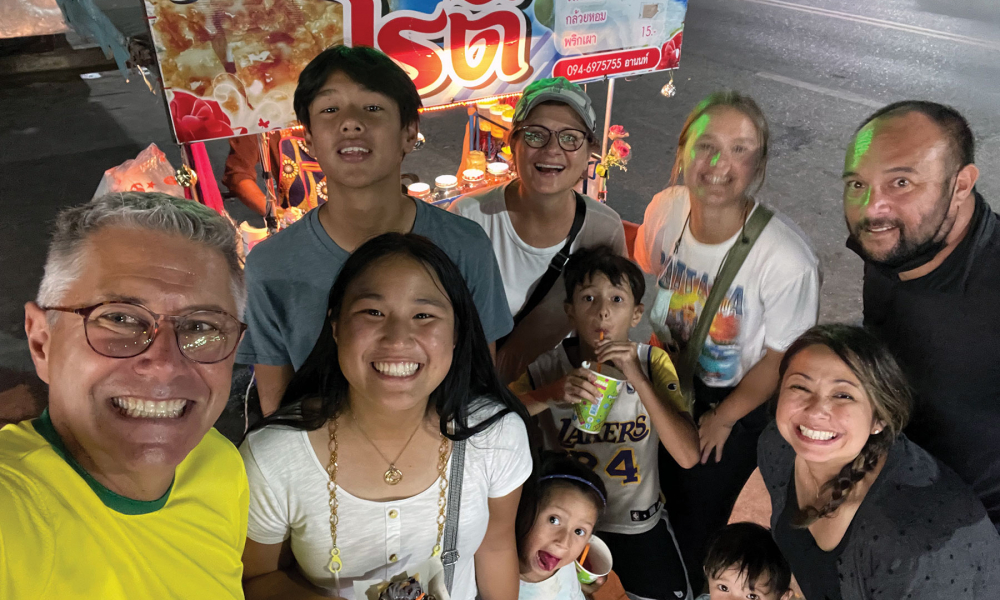
_1544130727_500x500.png)
